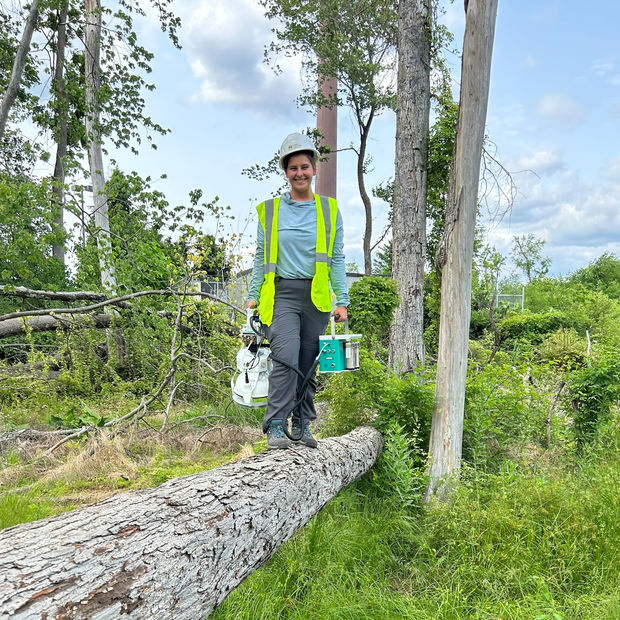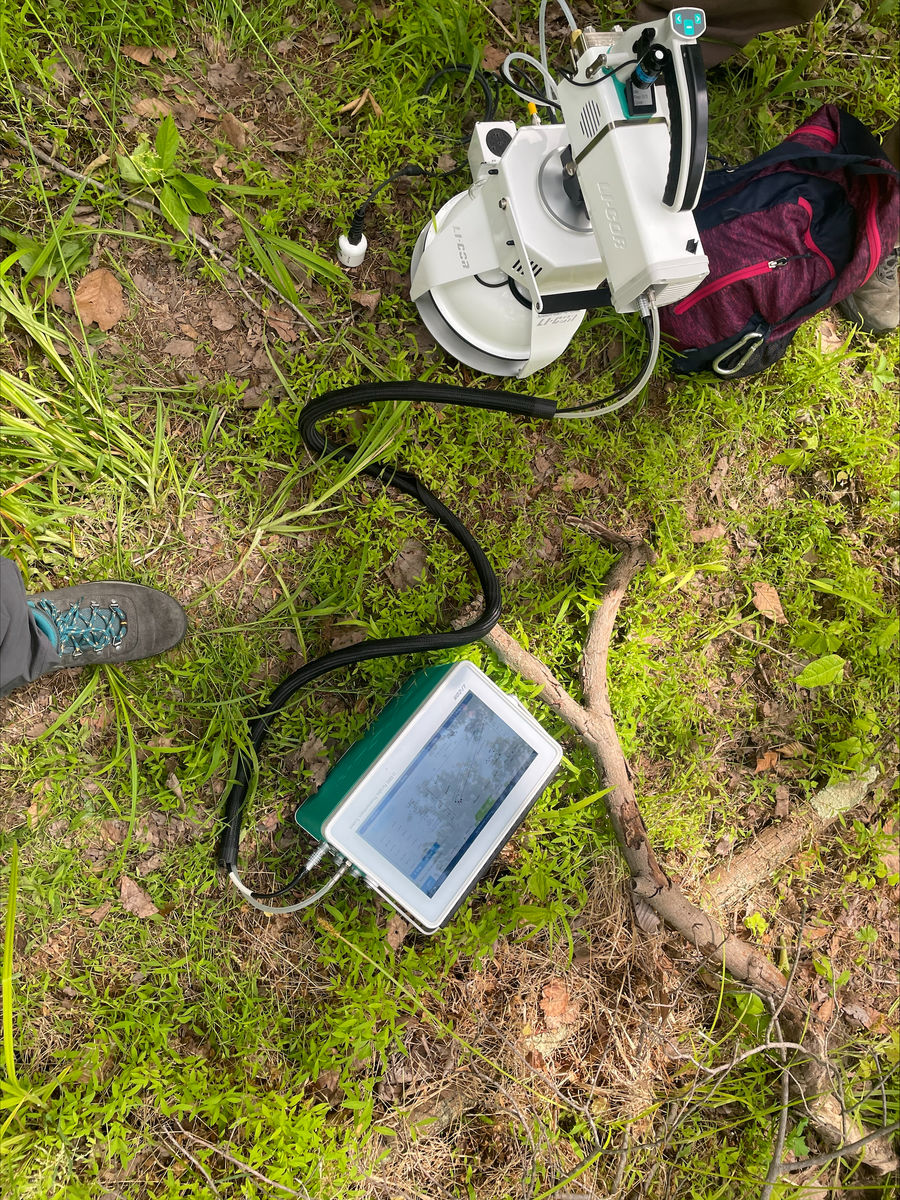Horticulture Major Tests Forest Recovery at Ambler Campus

This is the second of four articles about Tyler's Spring 2023 CARAS grant awardees.
Horticulture major Trinity Flores (BS Hort ’24) developed a love for nature as a young student attending Waldorf schools, an academically rigorous education program where the focus on experiential learning often took her outdoors.
“I learned to milk cows when I was in third grade,” Flores, a Pottstown native, said.
At Tyler, her passion for environmental study has also piqued her interest in research, leading her to apply last spring for a CARAS grant to conduct a research project on the recovery of the tornado-damaged forest at Temple University’s Ambler campus. Flores was one of four Tyler undergraduate students to be awarded research grants in spring 2023 through Temple’s Creative Arts, Research and Scholarship program.
Over the summer, Flores measured the amount of carbon dioxide being released from the soil at 18 dispersed locations throughout 10 acres of forest on the Ambler campus and at six locations in a nearby undisturbed forest. She used a LI-COR portable gas analyzer with a soil flux chamber attachment. She was trained by her project mentor, Research Assistant Professor Josh Caplan, PhD in how to use the equipment.
The process required her to insert PVC collars into the ground at the beginning of the season and then visit each multiple times through the summer. During each visit, she would attach the chamber of the gas analyzer to the collar, which would seal and then record the CO2 flux in the soil over three minutes. One measurement consisted of repeating that process five times at each site. Flores conducted five rounds in all 24 locations.
“This system measures the changes in CO2 concentration inside the chamber when it is closed over the soil. Measuring soil CO2 flux offers valuable information about the well-being and operational dynamics of ecosystems,” said Flores. One measurement consisted of repeating that process five times at each site. Flores conducted five rounds in all 24 locations, toting the 10-pound flux chamber along with an attached infrared gas analyzer to each site.
Using the LI-COR’s embedded software, she downloaded the data from the gas analyzer to her laptop, and processed and graphed it in Excel.
“There was a slightly higher respiration in the TFO compared to Robbins Park,” said Flores, indicating that the forest was still experiencing disturbance from the 2022 tornado that ripped through the old growth forest on campus but left the 38-acre township park and nature preserve nearby untouched. “But way more research has to be done to understand the full effect of the tornado.”

Caplan, an environmental biologist who studies plant and soil dynamics, said that Flores project was important in understanding the long-term effects of severe climatic events such as the destruction of mature forests.
“Due to the loss of the tree canopy from the tornado, we thought there could be big shifts in the amount of rain and light reaching the soil surface, leading to big shifts in soil temperature and moisture. These two things largely determine the activity of soil microbes and roots, which are what release carbon dioxide from the soil back into the air,” he said.
“Her measurements are therefore helping us understand how the storm has changed this carbon loss process, and the answer seems to be that it has accelerated it, at least a little. This could mean that tornados in Northeastern forests are not good for soil carbon storage, at least in the first few years after the storm.”
Flores said she was thrilled by the opportunity to conduct such important research, as her motivation for studying science and nature “is to be part of improving the world, looking into something and discovering new things.”
“It was very hard, but I loved it,” said Flores, who wrote a paper about her findings as part of the grant program. She will present her research at undergraduate symposiums at Ambler and on Temple’s main campus and hopes to do other presentations about her work.